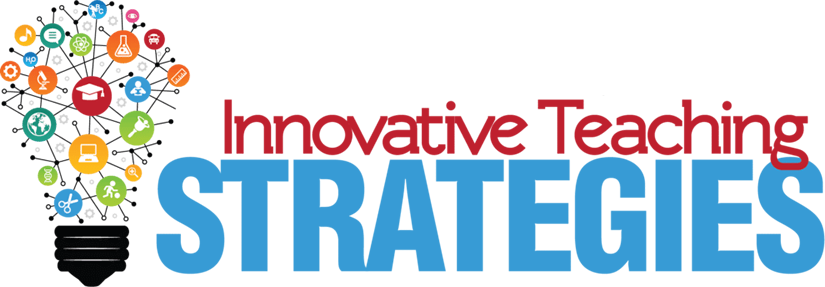The Innovative Pedagogy Grant is an investment in the improvement of courses taught by faculty who provide students with exemplary, highly engaging learning experiences, offered either in an online, blended, or traditional format. Eight faculty, Joanna Appel, Rachel Bush, Sabrina Habib, Jin Liu, Jason Porter, Charles (Andy) Schumpert, Rebecca Stern, and Michael Wilkinson, were awarded grants for the revision of existing courses or development of new courses.
Joanna AppelClinical Assistant Professor Joanna Appel, Clinical Assistant Professor in the Department of Pharmacology, Physiology, & Neuroscience, plans to revise "Physiology for Health Sciences" (PHPH 701). This lecture-based course is designed to provide the essentials of human physiology to graduate and professional students in the health sciences. This course differs from most traditional courses in that it is delivered by delivered by a team of instructors. Appel plans to gradually implement a series of changes over time to enrich the student experiences, reduce cognitive load, encourage integration and application of course content, promote a supportive and inclusive learning environment that fosters all students’ growth and success, and incorporate more active learning elements into course delivery. She will use grant funds to support professional development opportunities that target active learning techniques in physiology education, also. |
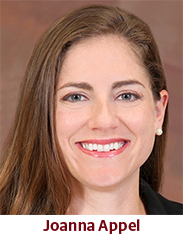 |
Rachel BushAssistant Professor Rachel Bush, an assistant professor in the College of Nursing, will revise the "Psychiatric/Mental Health Nursing" course (NURS 411). During this learning experience, students gain clinical experiences through inpatient placements and simulations at the College of Nursing (CON) simulation center. Learning opportunities are limited by a paucity of available psychiatric clinical sites and a high demand for simulation resources. Bush seeks to provide an opportunity for upper division undergraduate nursing students to learn and practice fundamental mental health skills in mindfulness-based stress reduction (MBSR), using module-based peer learning labs by expanding initial activities introduced in spring 2023 and implementation of innovative strategies to equip students with essential skills needed to address patient specific mental health concerns that are commonly found in nursing practice. |
 |
Sabrina HabibAssociate Professor Sabrina Habib, Associate Professor in the Department of Visual Communications, will offer a core course, "Foundations of User Experience (UX)", in a new undergraduate minor. The online, asynchronous course introduces the principles of user experience design and research, including usability testing and user research methods. The goal of Habib's project is to enhance the student learning experience by incorporating Panopto, a video platform that enables instructors to create interactive video content. The interactive content will be designed to support active learning strategies, including problem-based learning, case studies, and peer-to-peer learning. The interactive videos will include quizzes, polls, and discussions. As a result, Habib hopes to create a more engaging learning experience that enhances student learning outcomes and fosters a sense of motivation and accomplishment. |
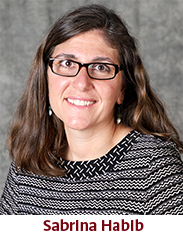 |
Jin LiuClinical Assistant Professor Jin Liu, Clinical Assistant Professor in the Department of Educational Studies plans to redesign the web-based "Designing and Analysis of Educational Survey" (EDRM 724) course. To address the needs of a more diverse student population, Liu will rename it and include more textbooks to provide a complete step-by-step guide for students through the support of Open Educational Resource (OER). Certain topics and more technology integration will be added to improve the quality of the course. Additionally, she seeks to include peer assessment activities to enhance students’ assessment experiences. The ultimate goals are to improve student-content, student-student and student-instructor interactions in online learning environment and better serve students’ needs in survey scale design, directly benefitting their future research. |
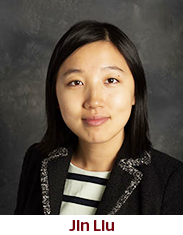 |
Jason PorterInstructor Jason Porter, an instructor in Visual Communications, focuses on developing and understanding interactive immersive experiences through augmented reality (AR) and virtual reality (VR) technology platforms in JOUR 499 (" Immersive Presence"). The course was initially taught online and asynchronously due to the pandemic. The revised face-to-face course seeks to enhance student learning and engagement through various pedagogical theories/models and innovative techniques. Ensuring a seamless transition, Porter plans to update technology platforms, introduce immersive spaces for experiential learning, reorganize student-led small group discussions to a fishbowl style seminar, and incorporate student-led graded assignments. Also, he hopes to develop a comprehensive guide or workshop that covers the fundamental concepts, tools, and software used in AR/VR development to expand the pool of faculty members who can teach AR/VR. The training materials will also include strategies for incorporating active learning and experiential learning methods into the course. |
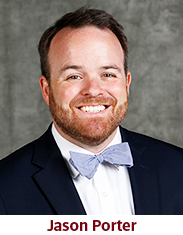 |
Charles (Andy) SchumpertSenior Instructor Charles (Andy) Schumpert, a Senior Instructor in the Department of Biological Sciences, will inject the Cellular and Molecular Biology Laboratory" (BIOL 302L) course with more authentic experiences by incorporating generative artificial intelligence (gAIs) such as ChatGPT, Google Bard, and Microsoft Bin to refresh the way students approach laboratory courses. As fears of plagiarism and cheating spike, Schumpert seeks to incorporate gAIs for the use of creating more productive, authentic experiences and use them to engender enthusiasm, imagination, and more authenticity. Specifically, he will develop guidelines for gAI usage in BIOL 302L, create a framework for ethical usage of gAI in BIOL 302L and beyond, and design an authentic data sharing experience for independent group research projects (IGRPs). |
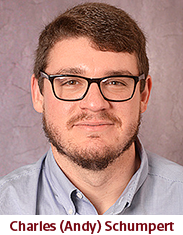 |
Rebecca SternAssociate Professor Rebecca Stern, an associate professor in English, will teach a new class, “Playing in the Archives” (SCHC 452). The course seeks to actively engage students in the work of archival research. Because they will be working in archival spaces themselves, students will have both context-based and “real world” experiences. Her grant award will support the development of an immersive learning experience for students through visits to local collections, and visits from local curators and guest speakers. By the end of the semester, students will be able to analyze literary representations of archives, museums, and libraries; engage in archival and local historical research; illustrate the potential uses of local collections; and demonstrate the portability of the methodological skills they learn. It is Stern's hope that the community engagement component of the course will help to build and reinforce connections with other USC courses and beyond campus for future students and faculty. |
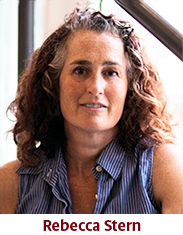 |
Michael WilkinsonAssistant Professor Michael Wilkinson, Assistant Professor of Trombone in the School of Music, seeks to revise and innovate Applied Trombone Lessons course(s), making greater use of technology and recording skills that are invaluable to the musician and educator. To accomplish this, he will introduce his trombone students to the technology of looping. By using this technology, students will learn how to be more precise in their counting, how to listen more closely to the harmonies and melodies that they create by looping, and also gain a stronger sense of pride and ownership in their craft and creations. For younger students, they’ll be able to easily create duets with themselves, or simple layered compositions/improvisations. For more advanced students, they’ll be able to build on these concepts and create or perform much more complex compositions/ improvisations, or even published compositions. |
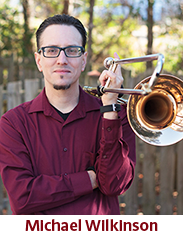 |
